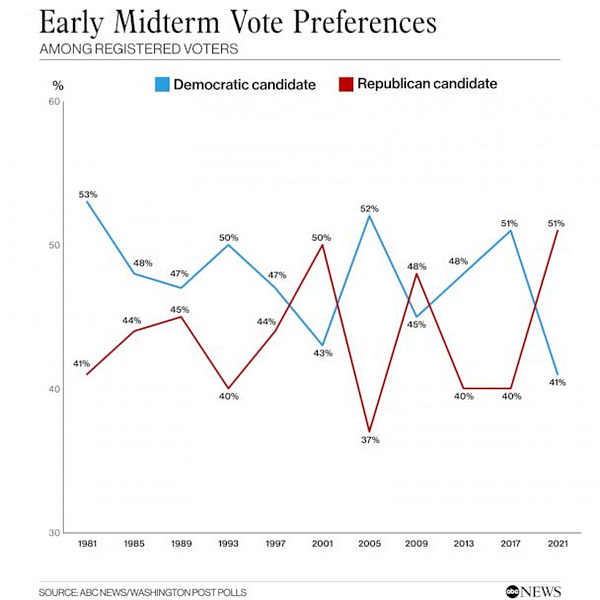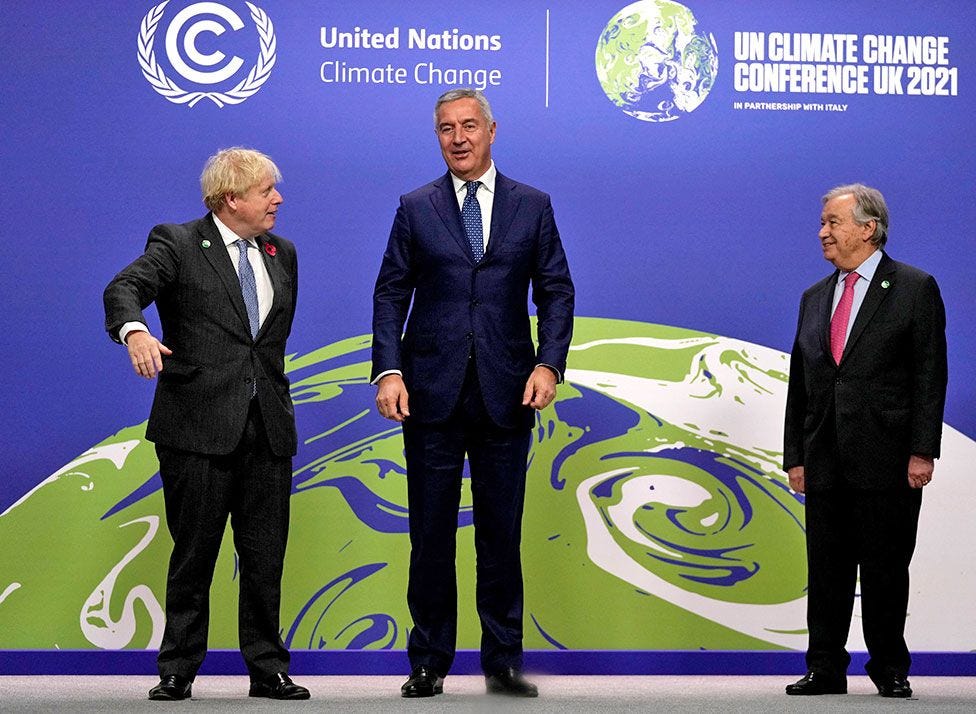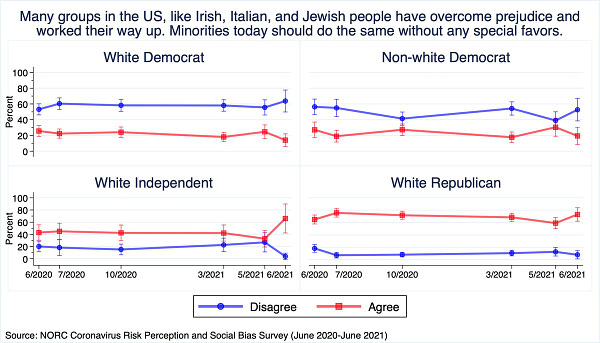Links For November
[Remember, I haven’t independently verified each link. On average, commenters will end up spotting evidence that around two or three of the links in each links post are wrong or misleading. I correct these as I see them, and will highlight important corrections later, but I can’t guarantee I will have caught them all by the time you read this. PS: Happy Thanksgiving!]
1: The story of Jeff Bezos’ biological father, a former circus performer who didn’t realize Jeff was his son until well into the 2010s.
2: New type of nominative determinism just dropped (source):
3: Speculations on the rise of Christianity. A consistent 40% per decade growth rate maintained from St. Peter to Constantine would fit observations nicely; we know this is possible in theory because Mormonism has also grown at about 40% per decade the past century. Also, plausibly Constantine’s conversion barely changed the growth rate at all.
4: Related:
258Likes27Retweets](https://twitter.com/RomeoStevens76/status/1458933961153908736)
5: Vets are still debating whether animals get placebo effects. Here’s a study suggesting they do; I can’t read the full text, but I’d be interested in knowing whether these dogs had previous good experiences with anticonvulsants (in which case it feels more Pavlovian) or if they’re claiming that dogs somehow magically know what a medicine is and what it should do (maybe they’re failing to distinguish from regression to the mean?)
6: If you were following coverage of the COP26 climate summit, you might have seen this picture:
Boris Johnson (left) is 5’9, so the guy in the middle must be gigantic. Who is he? Looks like it’s Milo Djukanovic, President of Montenegro, who’s 6’6 (198 cm). Is he the tallest world leader? It seems like he’s tied with his colleague across the border, Serbian president Aleksandar Vucic. Why are Balkan leaders so tall? As usual, the answer is “genetics”. This article says:
It has been noted that men from Herzegovina are taller on average than men in other places—the average male height is just over six feet…Putting all the data together, researchers concluded that the most likely cause of larger-than-average height of Herzegovinian men is lifestyle during the Paleolithic—men hunted large animals such as mammoth for survival—such a diet, heavy in protein, combined with small population densities, would have provided ideal conditions for height selection, resulting in increasingly taller men who passed the trait down through their I-M170 chromosome to future generations.
Some sources note that they manage to beat the Dutch despite the latter country’s much higher human development index. The Dutch are probably tall through a combination of nature and nurture; Balkan people are tall through nature alone.
7: Eliezer Yudkowsky doesn’t need more ego boosts, but an idea he had a couple of years ago - using strings of bright lights to provide a better and brighter experience for Seasonal Affective Disorder sufferers than regular light boxes - spread from him to the rationalist community to the wider world, and has finally gotten tested in a formal study (see Acknowledgments section). Results seem vaguely positive: “SAD symptoms of both groups improved similarly and considerably…exploratory analyses indicate that a higher illuminance is associated with a larger symptom improvement in the BROAD light therapy group”
8: Percent of people who choose woke options on polls very tentatively and preliminarily seems to be going down post-Trump (h/t Richard Hanania).
281Likes66Retweets](https://twitter.com/ZachG932/status/1454202676611256321)
10: Did you know: all those reconstructions of “how classical art would have looked with the original paint” are probably inaccurate. There is no reason to think the Greeks and Romans used garish technicolor hues on their statues; what evidence we have suggest they were good at shading, and the statues were probably colored very tastefully.
11:Complaints about how Karl Friston uses the term “Markov blanket”
12: Trevor Klee on the claim that cyclosporine patients don’t get dementia. Apparently there was a big study where basically nobody on the immunosuppressant cyclosporine ever got dementia, and there are some theoretical reasons why cyclosporine might prevent neurodegeneration. But another study found people on cyclosporine got dementia at the usual rate. I think in a situation like this you should have a really high prior on “the people who got the crazy result bungled their study somehow”, but I’m interested in hearing what other people think.
13: Also from Trevor: a history of fluvoxamine treatment for COVID.
14: To tide you over until the next book review contest, here is awanderingmind’s review of The Conquest Of Bread.
15: Claims:
Helion has raised a massive round to build their 7th generation Polaris reactor that will create net energy by 2024. For a long time, fusion energy has been 10-20 years away. Now it is 3 years away. cnbc.com/2021/11/05/sam… ft.com/content/dcb75a… (better article, but paywalled)
[ ft.comSubscribe to read ft.comSubscribe to read |
Financial TimesNews, analysis and comment from the Financial Times, the worldʼs leading global business publication](https://www.ft.com/content/dcb75a56-ca23-439c-96db-56483979bf34)[3:49 PM ∙ Nov 5, 2021 |
1,188Likes184Retweets](https://twitter.com/moskov/status/1456649950314467332)
16: Big trial on Vitamin D for depression finds null result. Peter Attia tries to tear it apart here, but I am unconvinced, especially in the context of Vitamin D never working for any of the things people say it does besides the most boring aspects of bone health.
17: “California is actively considering the adoption of flawed and inequitable guidance on math curricula based on misleading data and inaccurate success metrics reported by San Francisco Unified School District (SFUSD)…Based on our review of the data, we found misleading, unsupported, and cherry-picked assertions of success for the new math program. We noted that overall test scores are down and enrollments in UC-approved advanced math classes have dropped as well.” It looks like San Francisco is trying the good old “lower standards, then when more kids meet the standards, claim your school reform plan worked” trick again.
18:A new study claims that self-reported “Long COVID” symptoms are more associated with believing you’ve had COVID than with actually having it (as measured by serologic testing), which sounds like pretty strong evidence that it’s psychsomatic. Expert reactions are mixed-to-negative, although the only one of these that doesn’t sound like excuse-making is Dr. Rossman’s about the unreliability of the tests. I haven’t confirmed test reliability stats but Philippe Lemoine also thinks this is a plausible confounder.
19: Noahpinion: What If Xi Jinping Just Isn’t That Competent? I appreciated this for making me think, and for underlining the extent of the difference between the Deng/Jiang/Hu era and what Xi’s doing. I especially appreciated this line, which I’d never thought about before:
Xi presided over the end of China’s hypergrowth. To some extent this is not his fault. No country can grow at 10% forever, and there were many structural forces pushing downward on China’s numbers — the end of the demographic dividend, the exhaustion of rural surplus labor (the Lewis Turning Point), the saturation of export markets, and so on. But China is also slowing down earlier than South Korea, Taiwan, or Japan did in their day. China’s per capita GDP (at PPP) is still only about 1/3 that of a developed country, so if they stop catching up at about half of developed-country levels, that will not be a great showing.
A big lesson of the past twenty years has been “actually liberal democracy isn’t necessary to reach developed-country status”, so it would be quite the twist if it turned out you needed liberal democracy to reach developed-country status. This gets pretty close to the great mystery of why some less-developed countries “catch up” and others don’t; whatever happens in China is going to be a really useful data point.
20:Variations on the fable of The Frog And The Scorpion.
21: You’ve probably heard about the University of Austin, the new project by a bunch of wokeness-critical academics to start a new university that won’t cancel people or force conformity (New York Post article, Politico article - these were the two least “you need to be super-outraged about this right now” articles I could find). Tyler Cowen and Larry Summers are involved; Steven Pinker was supposed to be but left for unclear reasons. My thoughts, in no particular order:
-
Even forgetting the political aspect, attempts to start new universities are always welcome.
-
I agree with the founders’ politics, but wokeness isn’t just a problem, it’s also a proposed solution to the problem of who to tolerate and associate with in a hostile legal and media environment that likes guilt-by-association. I think it’s a bad solution, but once you jettison it you need a different solution - “tolerate everyone” sounds good until you get confronted with pedophiles, Nazis, al-Qaeda supporters, and super-woke people who demand you censor everyone else. U of A has committed themselves to finding some other stable equilibrium, but for now I think of them as a (welcome) experiment in seeing if they can do this, rather than a success story.
-
I keep thinking about an article I read - sorry, I can’t remember where - talking about the sense in which for-profit universities were scams. Some of them are scams in that they didn’t exist. Others were scams in the sense that they existed but provided terrible education. But some existed and provided education which was honestly about as good as you would get at a normal low-tier college, yet was useless in practice. You’d apply for a nursing job with your nursing degree from Random For-Profit U, and the hospitals would say “What, never heard of them, forget it”, and that was also a scam if you went into a nursing program expecting to be able to work as a nurse at the end of it. I expect U of A can get buildings, fancy gowns, etc, but can they get respect? The hard part about founding a new top-tier university isn’t just getting lots of nice buildings and brilliant professors, it’s getting people to respect you when they’re used to not respecting any university that doesn’t have a hundred year record of excellence or powerful establishment backers. I don’t know, maybe their strategy is to hope everyone will confuse them with the University of Texas in Austin - in which case, good strategy.
-
Part III of this post is always relevant.
22: Related: Woolf University is an accredited university that “lets qualified organizations join as member colleges and offer accredited degrees”. I think the idea is that if you want to start a new college but are intimidated by the accreditation process, you can instead become an affiliate/subcollege of Woolf and since they are accredited, now you are too. I don’t know enough about education to know whether this will work but it seems like a cool idea.
23: Related: **Stanford faculty urge college to adopt the University of Chicago statement on free expression. Seems like a rare example of practical things happening in the fight for academic freedom.
24: Sort of related:
 Noah Smith 🐇 @NoahpinionJesus Christ. Strongest preference for Republicans since 1981. If something doesn’t change soon, we’re in for an enormous red wave in 2022.
Noah Smith 🐇 @NoahpinionJesus Christ. Strongest preference for Republicans since 1981. If something doesn’t change soon, we’re in for an enormous red wave in 2022.  [7:07 PM ∙ Nov 18, 2021
[7:07 PM ∙ Nov 18, 2021
3,698Likes703Retweets](https://twitter.com/Noahpinion/status/1461410804650053632)
 Armand Domalewski @ArmandDomaat a certain point you have to ask—what the fuck are we even doing here, man?
Armand Domalewski @ArmandDomaat a certain point you have to ask—what the fuck are we even doing here, man? 


 [4:05 AM ∙ Nov 18, 2021
[4:05 AM ∙ Nov 18, 2021
2,270Likes280Retweets](https://twitter.com/ArmandDoma/status/1461183722439385090)
I console myself with the idea that the Democrats have some kind of grand strategy to both make everyone hate them as much as possible, and also push policies that will accomplish exactly the opposite of all their goals. Then Republicans will capture all branches of government with large majorities, and build lots of solar panels in order to own the libs. Also promote race-blind hiring, build lots of housing to fight homelessness, repeal SALT deductions, regulate Big Business, pull out of foreign wars, heck, why not legalize marijuana? Viewed this way, maybe Biden and Pelosi are the greatest political geniuses of their generation!
25: On the Calusa, the pre-conquest native inhabitants of south Florida:
[They] lived in large, communal houses which were two stories high. When Pedro Menéndez de Avilés visited the capital in 1566, he described the chief’s house as large enough to hold 2,000 without crowding, indicating it also served as the council house. When the chief formally received Menéndez in his house, the chief sat on a raised seat surrounded by 500 of his principal men, while his sister-wife sat on another raised seat surrounded by 500 women. The chief’s house was described as having two big windows, suggesting that it had walls. Five friars who stayed in the chief’s house in 1697 complained that the roof let in the rain, sun and dew. The chief’s house, and possibly the other houses at Calos, were built on top of earthen mounds. In a report from 1697, the Spanish noted 16 houses in the Calusa capital of Calos , which had 1,000 residents.
26: How have supply chain disruptions affected lines on graphs measuring the progress of AI? (see also this comment)
27: Related: Transcript of Richard Ngo and Eliezer Yudkowsky on AI (part 1 on capability gains, part 2 on alignment difficulty, part 3 with Paul Christiano on takeoff speeds)
28: Previous studies found criminality is mostly genetic, but left room for some family effects. A clever study investigates these with sibling age differences. If you have a criminal older sibling, but that sibling is so much older than you that you barely/never interact, you have 25% chance of being a criminal yourself. But if you have a criminal older sibling close to the same age as you who can influence you a lot, you have a 33% chance. This neatly shows a modest but important non-genetic effect, although it can’t necessarily distinguish between direct sibling influence and more complicated things like “your parents changed parenting style during that time”.
29: EA Forum: Good News On Tackling Climate Change. Although we’re less likely than hoped to reach the target of < 1.5C of warming, we’re also less likely than feared to reach truly awful scenarios like RCP8.5 (>6C of warming). Partly this is just because, as we move forward in time and see how things go, uncertainty decreases and the chance of extreme scenarios goes down. Partly it’s because we’ve genuinely made progress in things like solar power (and, although we haven’t banned coal, we’ve mostly succeeded at not vastly increasing our coal use, which was never certain). And partly it’s because we’ve studied climatology more and ruled out some scenarios where the climate is super-hyper-sensitive to carbon. As a result, the authors’ interpretation of IPCC data says that the risk of RCP8.5 (the technical name for the worst warming scenario) has gone from 11% in 2015 to less than 1% today. We are probably on track for between 2 and 4 degrees of warming this century, which will be bad but not existentially catastrophic.
30: Related, by Hannah Ritchie: Stop Telling Kids They’ll Die Of Climate Change.
31: Related: Daniel Reeves vs. Bryan Caplan on climate change (part 1, part 2). Reeves (who thinks climate change is a big problem) challenged Caplan (who thinks it isn’t) to read Climate Shock. Caplan read it and (in my maybe unfair interpretation) agrees that it seems to make a strong argument, but says that since it’s by left-wingers it’s probably biased in some hard-to-detect way and he can ignore it. While it’s true that there are many biased people out there, and some of them make strong arguments, I also notice this is a fully general excuse for never changing your mind in response to anything, however convincing it would be otherwise. Seems bad.
32: Last spring Robin Hanson and others mooted the idea that viral load affected disease severity; eg if you inhaled one coronavirus particle, you’d get a mild coronvirus case, but if you inhaled 100,000, you’d get a severe case. I hadn’t realized that the prestigious New England Journal of Medicine published an article in October saying maybe this might be true (though not providing any new evidence). This sparked responses by other people saying maybe it might be false (also not providing evidence) - honestly the whole thing was weirdly centered around PR (“if we say this is true, it might make people like masks more!”, “but if we say it’s false, that could make people like vaccines more!”). The only useful thing I got out of this is that Stephan Guyenet looked into a pathogen load/severity correlation for diarrhea and found there was none.
33: I’d previously cited a claim in Joseph Henrich’s Secret Of Our Success that people liked spicy foods because they were antibacterial, but an article in Nature says there is “little evidence” to support that claim.
34 When Paul Morphy was a young child in the mid-1800s, he watched some family members play a few chess games and figured out the rules. Then - apparently without any formal instruction or practice - he became the greatest chess player of his age, beating a Hungarian master at 12 and becoming unofficial world champion at 20. Then he quit chess and never did anything else of note again. (h/t Erich Grunewald)

 RomeoStevens @RomeoStevens76A broad survey of academic philosophers found that the only group who majority one boxes on newcomb’s problem are those who study ancient Greek and Roman philosophy. The general public also one boxes much more reliably.
RomeoStevens @RomeoStevens76A broad survey of academic philosophers found that the only group who majority one boxes on newcomb’s problem are those who study ancient Greek and Roman philosophy. The general public also one boxes much more reliably. 

 Zach Goldberg @ZachG9321/n Unless this is sampling bias, some signs that the Awokening has stalled–particularly among white independents. For instance, the share of white indeps that ‘agreed’ with the statement below doubled (33%->66%) between May and June (vs 59%->73% for white Reps).
Zach Goldberg @ZachG9321/n Unless this is sampling bias, some signs that the Awokening has stalled–particularly among white independents. For instance, the share of white indeps that ‘agreed’ with the statement below doubled (33%->66%) between May and June (vs 59%->73% for white Reps). 
 Dustin Moskovitz @moskov
Dustin Moskovitz @moskov